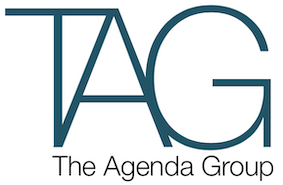That politics and government have become tawdry forms of entertainment for the masses is a malaise that raises genuine questions about the health of Australian political discourse.
The now seemingly weekly Newspoll commands such attention and lengthy analysis with dedicated column inches, airtime and so on giving play to the human drama of politics but lessening the scrutiny and real need for policy review and reform.
Against this backdrop the release of Infrastructure Australia’s annual report for 2011, Communicating the Imperative for Action has received startlingly little coverage.
The report provides a frank and worrying assessment of the failure of governments at all three levels to work together toward addressing the country’s urgent infrastructure needs.
The COAG reform process has stalled on too many fronts. Issues like water sector reform are inevitably complex, and riven by cross-border self –interests, but utterly necessary for our future well-being in many regards.
Sir Rod Eddington and his team also focused specific attention on the need for a public debate and, by implication, government leadership on the vexing issue of how we pay for our growing infrastructure needs. He warns in the plainest of terms: “Failure to address this matter will threaten our prosperity and future”.
The discipline required for our states to accurately plan future needs, to justify and prioritise investment decisions and to embrace innovation in capital project design and financing is patchy at best and too often goes missing.
The role local governments can play (Infrastructure Australia notes we have 560 of them across the country, and asks is this sustainable?) in both enabling and retarding infrastructure development and policy delivery is often overlooked, though the media can’t overlook dodgy parking inspectors and misbehaving councilors.
What does it take to get everyone’s attention?
We are already faced with a two-speed economy: stagnating productivity; declining consumer confidence; flat retail sales; a softening housing market; non-mineral exports constrained by a high Aussie dollar; growing public debt; failure to service booming populations in our capitals; a skills and labour shortage; increasing energy and water costs and ageing infrastructure.
Thank God (or Mao) for China, lest where would we be?
Australia faces substantial challenges, as indeed does the rest of the world. Our challenges are not insurmountable – far from it.
The upside for Australia is that we have so much going for us, and so much opportunity if we do work through the public policy issues in a mature and reasoned fashion.
For instance just this week the National Transport Commission has announced agreement (after 20 years of discussion) between federal and state governments on the introduction of national rail safety laws that will save the industry up to $73 million.
Our governments can and do make good and rational decisions. Those of us outside of government must keep them focused on what really matters.
So if you get a call from Newspoll, tell ‘em you’re busy with more important matters – just as our politicians and their critics should be.
